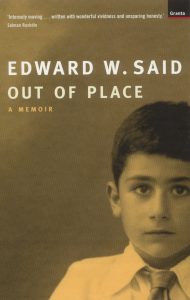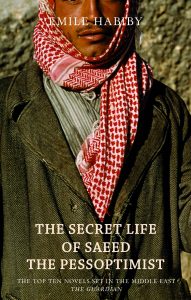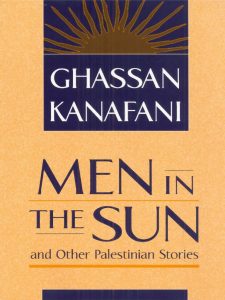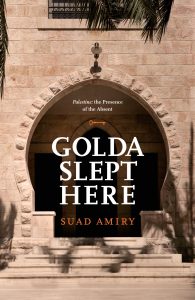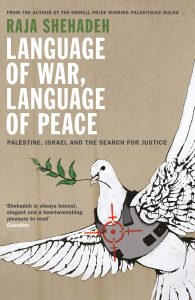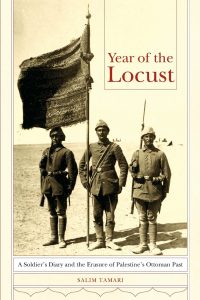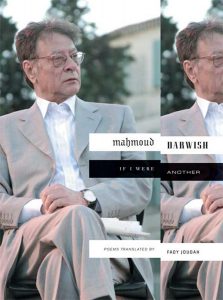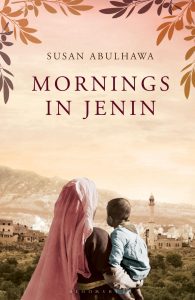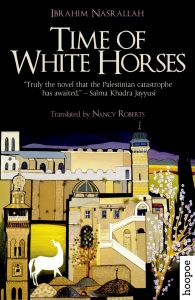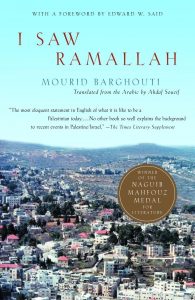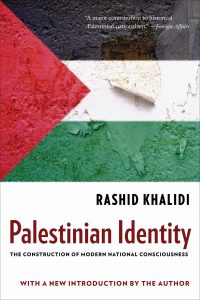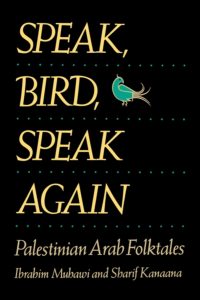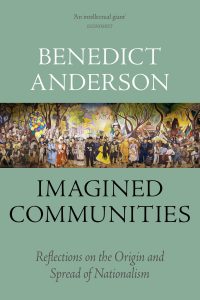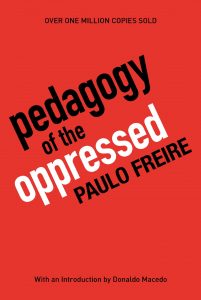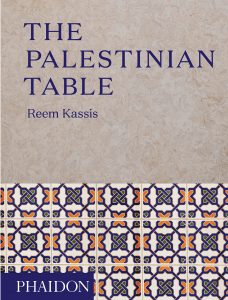One of the most genuine ways to understand the culture and people of a particular nation who live in a specific geographical area is to study the literature and other forms of art that were produced within a specific period of time. In many ways, this art is a reflection of the challenges, traumata, and fears that the people face, but it also a projection of their hopes, desires, and dreams, and perhaps their means of achieving their aspirations.
There is no doubt that the last twenty years have seen Palestinians go through significant political turmoil that continues to affect the smallest details of their lives. More than ever before, the Palestinian identity is constantly developing in terms that are dictated by the political realities. Therefore, one can trace some patterns and shifts in the roles played by the creative artists (including writers) both within the borders of historical Palestine and also among those living in the diaspora.
While it is normal for culture to stand on the front line in times of adversity, Palestinian writers took the lead in defending Palestinian identity, defining political and historical references, protecting and affirming narratives, defending national and human rights, and last but not least, promoting culture and diversity. These roles assumed by literature are not new to the Palestinian experience. Ghassan Kanafani mastered this art in the sixties, Emile Habibi in the seventies, Mahmoud Darwish in the eighties, and many others before and after them. However, the last twenty years have marked a particularly important phase, especially with the tightening grip of the occupation on Palestinian physical and nonphysical spaces, the international shift of interest away from the Palestinian question, and the delusional peace process with its subsequent fictional state-building, which have consumed much Palestinian energy.
Regionally − and as Palestine is the focal point of the modern Middle East’s political identity, the jewel and the pride of the Arabs − writers from the Arab world have also made tremendous contributions to the literature on Palestine. And although our focus is more on the Palestinian literature produced by Palestinians themselves, we should not forget the likes of the Lebanese novelist Elias Khoury and the Iraqi poet Muzaffar Al-Nawab who have enriched the Arabic library with important works on Palestine that have been translated into dozens of international languages.
Observers of both fiction and nonfiction literature on Palestine that was produced before the nineties will easily agree to the fact that much of it was written by non-Palestinians and non-Arabs. And although in principle there is nothing faulty in this, in fact, it is a manifestation of the international passion for, and a testimony to, the Palestinian struggle for self-determination. It is important to recognize it as a strong sign of the fact that Palestinians largely lacked the agency to write their own history, story, and narrative in the English language. Many Palestinians appreciated this goodwill of the “other” in taking the lead and volunteering to act on behalf of the “oppressed,” however, for many others, at one point it seemed as if men were taking the initiative in writing on behalf of women about feminism, machismo, and masculinity!
Even if the earlier analogy is not strictly accurate, sure enough it triggered many local and diaspora Palestinian writers to take the initiative and document their lives, whether in the genre of diaries like those of Raja Shehadeh, Murid Barghouti, and Suad Amiry, or historical memoirs like the work of the social historian Salim Tamari. Many other young writers took on fiction as a form of historical documentation. While Salt Houses by Hala Alyan and Out of It by Selma Dabbagh continue to win international acclaim, Susan Abulhawa’s novel Mornings in Jenin has been translated into 27 languages, taking the Palestinian historical narrative to the four corners of the world.
The intention of these writers was obvious, and they often stated openly their aim to take ownership of the story and tell the narrative first and foremost to the international readership through the mouths and eyes of Palestinian themselves. Most of the work was done in English due to the need to “talk to the world,” and tell the “raw story” in order to regenerate international support for the Palestinian struggle. Some other writers, however, have used Arabic and then sought translation. Ibrahim Nasrallah, for example, wrote the Palestinian Comedy that covers 250 years of modern Palestinian history; his seven sequential novels have won practically every known Arabic literature prize and are currently being translated into English; two are already out.
Palestinian writers have also approached the field of history more directly. Nur Masalha was among the first to document the ordeal of the Palestinian expulsion. He also just released his masterpiece, Palestine: A Four Thousand Year History. Furthermore, Yezid Sayigh wrote the definitive account in Armed Struggle and the Search for State: The Palestinian National Movement, 1949–1993, thoroughly covering the 45 years between the Nakba of 1948 and the PLO-Israel accord of 1993.
The beauty of the land and the generosity of its people were also inspirational to poets. Of course, Mahmoud Darwish and Samih Al-Qasim practically monopolized the field of poetry for decades; since their passing, however, many young Palestinian poets have been stepping up to the plate and producing some extraordinary poems and spoken words. Rafeef Ziadah and Remi Kanazi continue to shine in performing their poetry. And although this essay focuses more on literature produced in English, we must not overlook the phenomenal Arabic poet Tamim Al-Barghouti, who is considered a superstar in modern Arabic poetry, most notably for his poem “In Jerusalem.”* Numerous other poets and writers who write in Arabic are making great strides, despite being beyond the English-language international radar, and include Fida Jiryis, Abu Al-Hayat, and Mahmoud Shqair, to mention but a few.
Beginning in the late 1980s and increasingly during the peace process, the domination of the political discussion caused the introduction and intermingling of definitions and references in ways that blurred many lines and confused several rationales. Luckily, the Palestinians had no better than Edward Said on their side to intervene clinically and expose some deep misunderstandings of power and privilege, portrayal and representation, justice and resistance. But it wasn’t only Said; others such as Lila Abu-Lughod and Jamil Hilal have also produced ethnographic and socio-political works that are still considered reference points for understanding the foundation of the Palestinian narrative and also the challenges ahead.
Several writings appeared in the late nineties to further articulate and popularize the Palestinian narrative. Ghada Karmi wrote her masterpiece, In Search of Fatima. Adding flesh to the bones, she contextualized the Palestinian narrative in a form of memoir that takes the reader on a journey of a Palestinian experience from the Nakba to modern-day Palestine. Historian Rashid Khalidi in Palestinian Identity: The Construction of Modern National Consciousness took on the most delicate of all jobs: namely, tracing the origins and the developments of the Palestinian national identity, and demonstrating, through many family records and other documents, how this consciousness of unique identity started nearly at the beginning of the twentieth century.
As Palestinians continued their long journey to liberation, the relevance of human rights and international law frameworks became more crucial, most importantly the right of return of the Palestinian refugees. Hence, Palestinian legal writers and refugee experts wrote persuasively about the plight of the Palestinian refugees, and their right to come back home, as enshrined by international law. Walid Khalidi and Salman Abu Sitta’s data collection and mappings are monumental; they dotted every single depopulated village, telling the story of the place and its people. Abu Sitta’s recent memoir, Mapping My Return, is among the most comprehensive works on the experience of the refugees, giving a personal and very human face to the dramatic events of the 1930s and 1940s.
Taking ownership of their own storytelling in languages other than Arabic, defining references, articulating and popularizing the Palestinian narrative, and promoting culture, Palestinian writers are making a rich contribution to literature in their fiction and nonfiction works.
In endeavors to promote culture, the more recent years have seen yet another trend in Palestinian literature. Something that is accessible for the many, something that is more cheerful and hopeful, something more celebrative and attractive, something that we can call cultural literature par excellence. The richness of Palestinian culture has inspired many to write about Palestinian cuisine, inspirational ladies such as Christiane Dabdoub Nasser, Joudie Kalla, and Reem Kassis have produced mouthwatering recipe books that popularize Palestinian food and the culture behind it, perhaps tearing down the Lebanese domination of this genre. Other writers, such as Sharif Kanaana, have written on the fascinating aspects of Palestinian folktales. The art and craft of embroidery was studied, analyzed, and popularized through the work of Widad Kawar and Hanan Munayyer, who produced some unique and significant manuals.
The challenges that face Palestinian literature are perhaps intertwined and even seemingly contradictory and trifold. One is to break the Arabic-English binary and to write and translate into languages that are far-reaching, beyond the usual Euro or Latin-centrism, such as Hindi or even Mandarin. And although the separation between the personal and the political is nearly impossible for Palestinian writers, the second wall to breach is precisely that of having to be always at the service of the cause. Palestinian creativity needs to be liberated from political constraints. And perhaps the third challenge that faces our literature is how to expand its role to also be a medium for social and cultural change, especially at times when the political players fail to provide a workable vision for a brighter future.
Mahmoud Muna was born in 1982 in Jerusalem. A computer science graduate and trained communicator, he is currently known as the bookseller of Jerusalem. He works in his family’s two bookshops and is a regular contributor to the media on current affairs. His interests lie somewhere between culture and identity, and behaviors and language. When Mahmoud is not reading, he is writing for local and international cultural magazines and newspapers.


